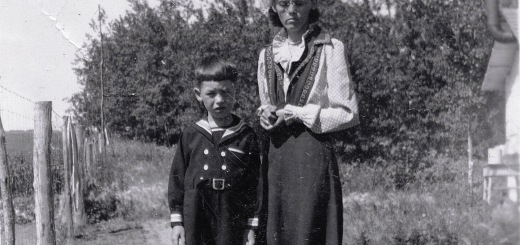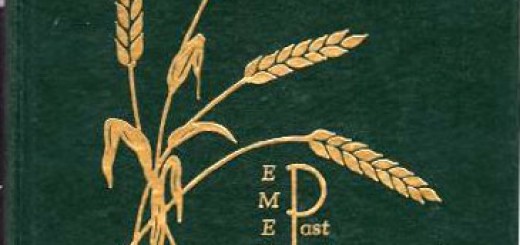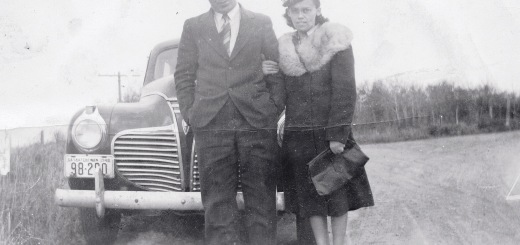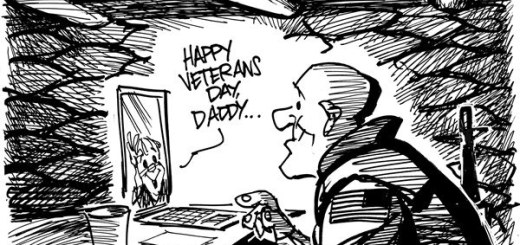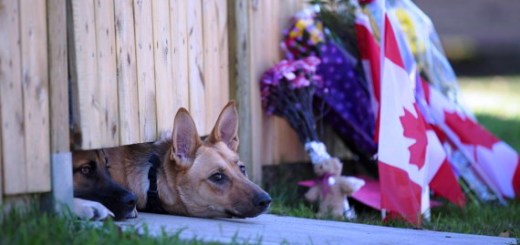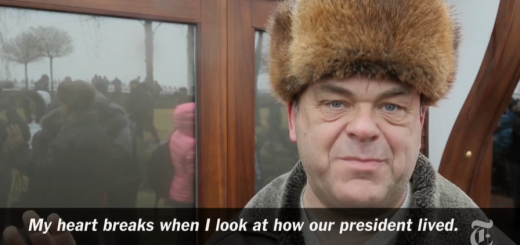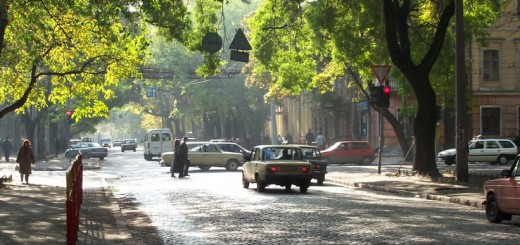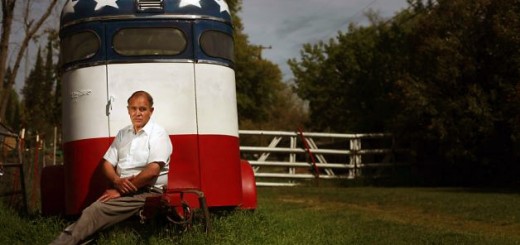One Man’s Voice
Before gravel roads
Recorded in an interview with my father, Joseph Sworak, April 1979
When the passenger ship SS Frederik VIII left Copenhagen, Denmark on April 4, 1927, the orchards were blooming and spring was in the air. My father and mother, Peter and Anna Sworak, my sister Nadia who was 13 and, I, Joseph, a boy of 15 were among the 500 families aboard. We came from all walks of life, rich and poor. For $200 apiece we were guaranteed passage to Canada — the land of opportunity.

At 544 ft. long, she was considered the flagship of four Scandinavian-American Line’s transatlantic steamers. She had two decks, an awning deck, two funnels, two masts and a speed of 17 knots. A crew of 245 and accommodations for 121 first class, 259 second class and 881 third class passengers rounded off the numbers. She served from 1914 through 1936 at which time she was sold for scrap.
Arriving in Halifax on May 1 we were greeted with snow and freezing temperatures. Then the long train ride to Kandahar, Saskatchewan where the CPR tracks ended. It was then sitting on the train platform that my mother said, “Би Канада померла поки Я суда проїхала.”
May Canada have been gone before I got here.
A Russian buffalo coat and an axe
The journey was long and winding from Kowel to Warsaw to Danzig to Copenhagen to Halifax. Many people were unaccustomed to the rich supply of food aboard the ship and became ill while many more, old and young alike, were plagued by seasickness.
We were told only to pack the necessities, and to Father, that meant some clothing, his pocket watch, a Russian buffalo coat, an axe, and a gallon of Polish whiskey (95% proof).
Not that we had much more to our names. Like everyone else aboard we were leaving Wolyn (Province), Ukraine for a reason — we were beaten, poor and hungry.
The children occupied their time by exploring the ship from end to end, watching films, and peeking into the bars where beer and whiskey were being served in large mugs. There was talk of a nobleman who had given a barefoot girl on the top deck some money to buy a pair of shoes. We soon discovered it was our Nadia, as she came running back excitedly, clutching a $10 bill, Canadian currency, in her hand.
But this wasn’t the first trip for my father. He had made the trip alone, before in 1909, stopping in Montreal to work in a cement factory for 50 cents an hour, then moving on to New York where he worked for a farmer.
He knew enough English to get us to Kandahar, the last stop on the CP rail where we were met by his friend, Mr. Sylvester Yewsiuk.

Click on the image for an enlarged view. Approximate location of Kandahar, Saskatchewan. Railway Systems 1927. Source: The Edinburgh Geographical Institute, eBook.
Life in late 1920’s Saskatchewan
We found work with the late Mr. Alex Rizik for $35-$45 a month. In the winter of 1929 I looked after some stock for Kelly Aziz and in 1931-1932 earned a wage of $10-$20 a month from R.H. Reeve in Dafoe as a farm labourer. By 4:00 a.m. porridge, milk, eggs, butter, and bread were on the table for breakfast. By 7:00 a.m. the 10 horses had been fed and harnessed. We were ready for the day ahead.
By 1928, however, we had saved the $160 cash needed to buy a quarter section from the CPR situated eight miles west of Wishart. This meant a trip to Wishart for supplies from Bazuik’s store, Jacobson’s hardware, Silberberg’s and Novasad’s grocery store, not to mention church once a month.
Weekdays were filled with the hard task of clearing the land by hand, and Saturday evenings with fiddle playing and Mother’s cross-stitching. We had no radio and no car. Our mail consisted of the Ukrainian Voice (Український Голос), and letters from home which were delivered to the post office at Krasne situated in William Luke’s home.
Better times ahead?
I married Josephine Sianchuk in 1933 after walking many a Saturday from Kandahar to the Sianchuk farm, a distance of some 22 miles. We settled on a CPR homestead which I cleared by hand like my father before me on his land. We have a son, Orest and a daughter, Sonia.
Nadia married Fred Palaschuk. Mother passed away on November 25, 1968 and Dad on February 25, 1969, three short months apart, at 78 and 80 years of age, respectively. In their 42 years in Canada, they cleared their own homestead, raised two children, enjoyed 12 grandchildren and some 28 great-grandchildren, and told many stories about the old country which I now tell to my children.
They will be remembered.
Note from Gravel Roads — This interview was prepared for Emeralds Past in Prose, Poetry and Pictures published in 1980 by the Bankend-Wishart Historical Society . My father passed away not long after my mother, in 1993, saying that he, like his father before him, died of a broken heart.




